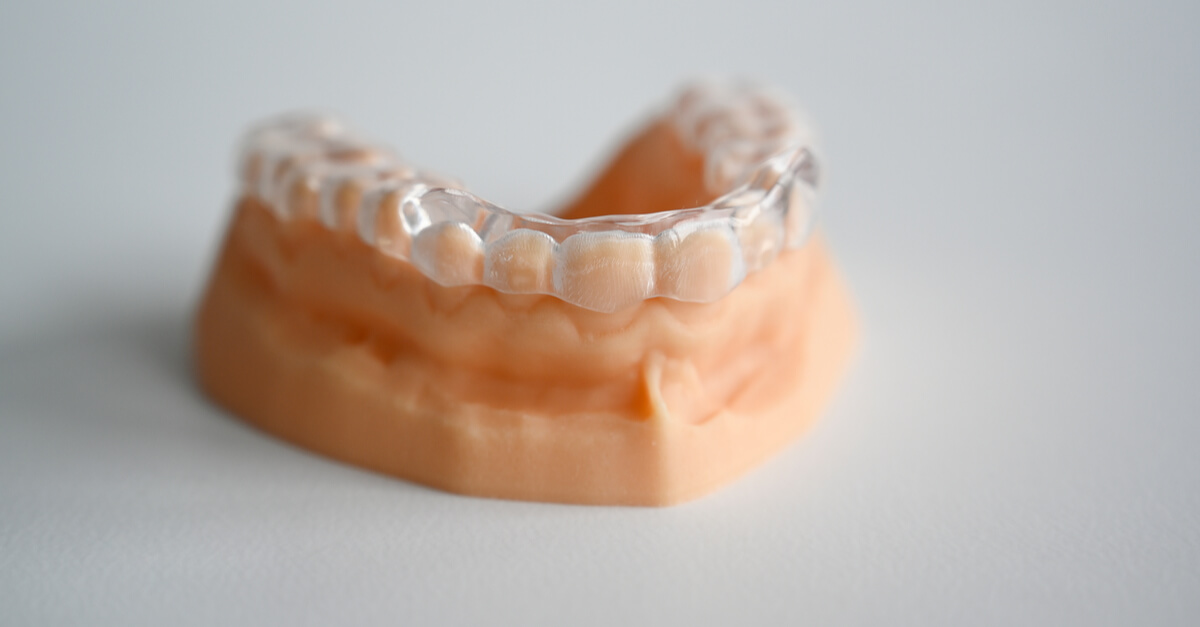Why Teeth Grinding Causes Dental Problems & How to Stop
Why Teeth Grinding Causes Dental Problems & How to Stop
Grinding your teeth can lead to damaged tooth enamel, headaches, problems with chewing and general discomfort. Bruxism is the medical term for this condition, one that most commonly affects people during their sleep. If it occurs on a regular basis, over time it can cause a variety of health issues and should be treated with preventative dental care.
What Causes Teeth Grinding?
People can grind their teeth for a wide variety of reasons including:
- Stress and anxiety
- Abnormal bite
- Crooked teeth
- Sleep apnoea
Grinding may happen occasionally when you’re feeling anxious or stressed or it may happen every night if you’re suffering permanently from one or more of the above.
Symptoms
Determining whether you suffer from bruxism can be difficult when it only happens during sleep. Ask a loved one to check you while you sleep or record yourself and listen for grinding noises. When you wake up, you may have symptoms such as:
- Sore or tender jaw
- A dull headache
- Tooth sensitivity
- Inflammation of gums
- Wounds on tongue and cheek
By visiting your dentist, they can confirm whether you grind your teeth by examining your mouth and jaw as they know exactly what signs to look for.
Ways to Manage Grinding Your Teeth
Teeth grinding is difficult to cure but it can be managed. The appropriate treatment depends on the cause of the grinding. If it’s due to lifestyle factors, there are a few ways you may be able to manage it at home.
- Reduce stress – Try to reduce the amount of stress in your life. For example, avoiding overworking, exercising more often, meditating, eliminating or better managing difficult or toxic relationships, and visiting a therapist.
- Improve sleep – Insufficient or poor quality sleep can contribute to grinding. Aim to go to bed earlier and wake up at the same time every day. Avoid screens before bed and maintain a cool, comfortable temperature in your bedroom.
- Practice relaxing your jaw – If you notice your jaw is tense during the day, practice relaxing it by placing the tip of your tongue between your teeth
- Maintain a healthy diet – Avoid or reduce consumption of food and drinks containing caffeine as it’s a stimulant that makes it difficult to relax the muscles in your jaw. Limit alcohol consumption, which can worsen grinding. Eat a balanced diet with lots of calcium and magnesium, which supports muscle function and nervous system health.
- Eliminating chewing habits – Avoid chewing on items like pencils, pens and chewing gum if you have such a habit as doing this encourages your jaw muscles to get used to repetitive clenching and grinding actions.
Seeking Professional Treatment
It’s a good idea to visit a dentist for treatment if your teeth grinding is occurring on a regular basis. If discovered early, it can be managed with a protective mouthguard that you wear at night. This is custom made to fit your bite, preventing damage while ensuring comfort.
In some cases, your dentist may need to repair damage to your teeth resulting from grinding. If the condition has gone untreated for many years, reconstructive dentistry may be needed to restore your teeth. This is important because if the position of your bite is not correct, it can strain your jaw joint and muscles, potentially leading to TMJ dysfunction.
Schedule a Check-Up With Your Dentist
If you want to find out more about treating bruxism, schedule an appointment with Dentists on the Gold Coast today on 07 5531 2053 or make a booking online. Our dedicated team provides a range of general, cosmetic, emergency and preventative dental care.

